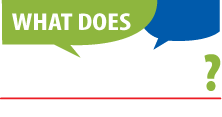Phrases starting with the letter: A B C D E F G H I J K L M N O P Q R S T U V W X Y Z
Definition of: mind
(mīnd) noun
1. The aggregate of all conscious and unconscious processes originating in and associated with the brain, especially those pertaining to cognition, intelligence, and intellect.
2. Memory; remembrance: to bear in mind.
3. Opinion; way of thinking: to change one's mind.
4. Desire; inclination: to have a mind to leave.
5. Mental disposition, character, or temper: a liberal mind; a cheerful mind.
6. Intellectual power or capacity.
7. The faculty of cognition and intellect, as opposed to the will and emotions: a noble heart and a cultivated mind.
8. A person, regarded as having intellect: the great minds of our time.
9. Sanity; sound mentality: to lose one's mind.
10. Philos. The spirit of intelligence pervading the universe: opposed to matter.
11. In Christian Science, God: also Divine Mind.
—a month's mind The monthly commemoration, usually the first, of a person's death.
—on one's mind Occupying one's thoughts.
—to speak one's mind To declare one's opinions freely or candidly.
—to take one's mind off To turn one's thoughts from.
—v.t.
1. To pay attention to; occupy oneself with: Mind your own business.
2. To be careful or wary concerning: Mind your step.
3. To give heed to, as commands; obey.
4. To care for; tend.
5. To be concerned about; regard with annoyance; dislike: Do you mind the noise?
6. To be aware of; notice; perceive.
7. Colloq. To remember: sometimes used reflexively.
8. Archaic To remind.
9. Obs. To intend; purpose.
—v.i.
10. To pay attention; take notice; watch.
11. To be obedient.
12. To be concerned; care: I don't mind.
13. To be careful. [OE gemynd]
—mind′er noun Synonyms (noun): brain, consciousness, disposition, instinct, intellect, intelligence, reason, sense, soul, spirit, thought, understanding. Mind includes all the powers of sentient being apart from the physical factors in bodily faculties and activities; in a limited sense, mind is nearly synonymous with intellect, but includes disposition, or the tendency toward action, as appears in the phrase “to have a mind to work.” The intellect is that assemblage of faculties which is concerned with knowledge, as distinguished from emotion and volition. Understanding is chiefly used of the reasoning powers: the understanding is distinguished by many philosophers from reason in that reason is the faculty of the high cognitions or a priori truth. Thought, the act, process, or power of thinking, is often used to denote the thinking faculty, and especially the reason. The instinct of animals is held to be of the same nature as the intellect of man, but inferior and limited; yet the apparent difference is very great. Human instincts denote tendencies independent of reasoning or instruction. As the seat of mental activity, brain is often used as a synonym for mind, intellect, intelligence. Sense is used as denoting clear mental action, good judgment, acumen; as, He is a man of sense, or, he showed good sense. Consciousness includes all that a sentient being perceives, knows, thinks, or feels, from whatever source. See GENIUS, SOUL, UNDERSTANDING. Antonyms: body, brawn, matter.

Comment about this word, ask questions, or add new information about this topic: